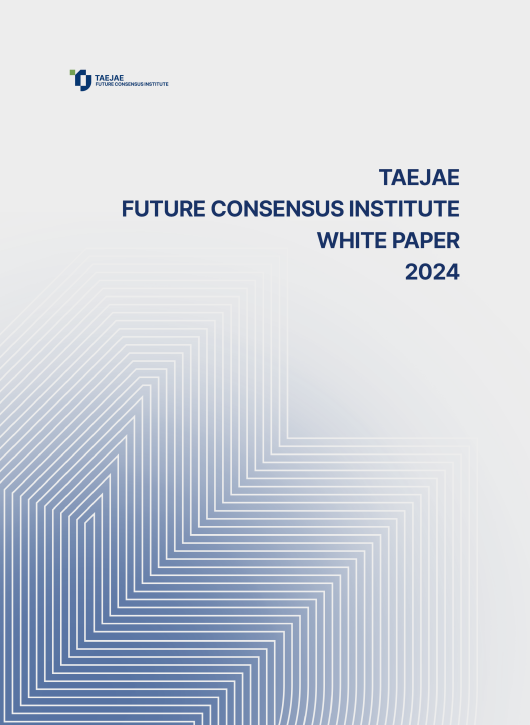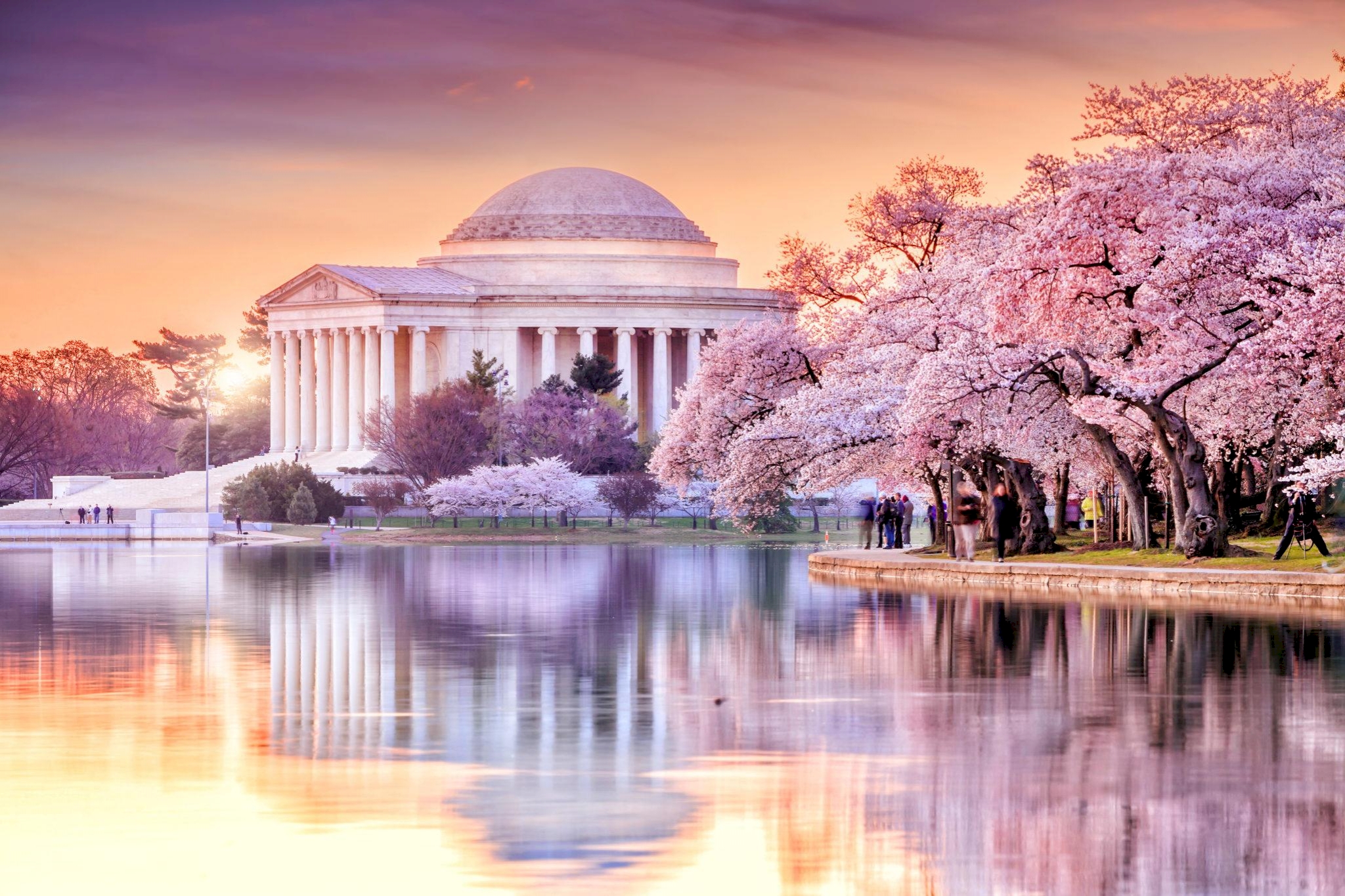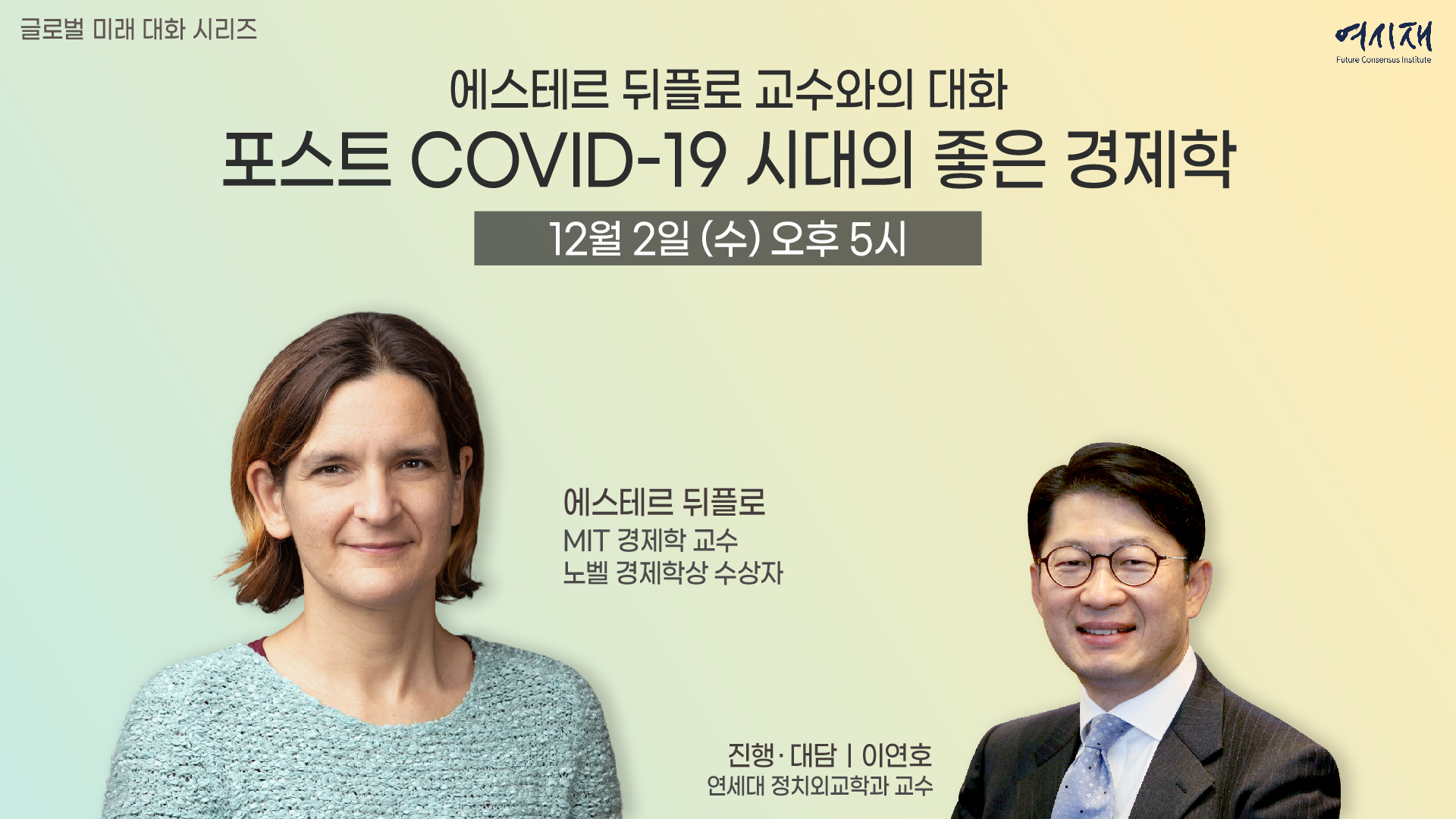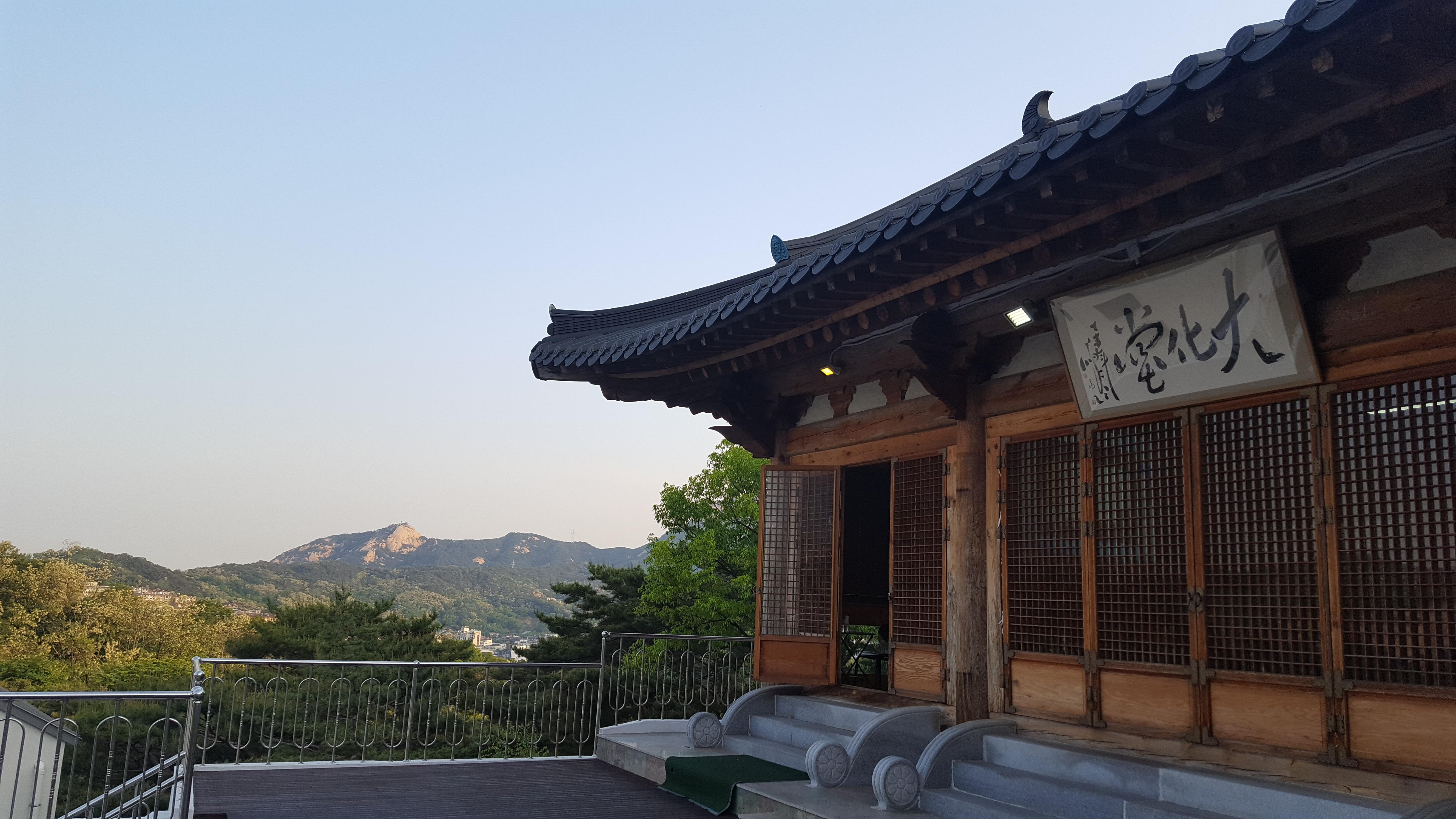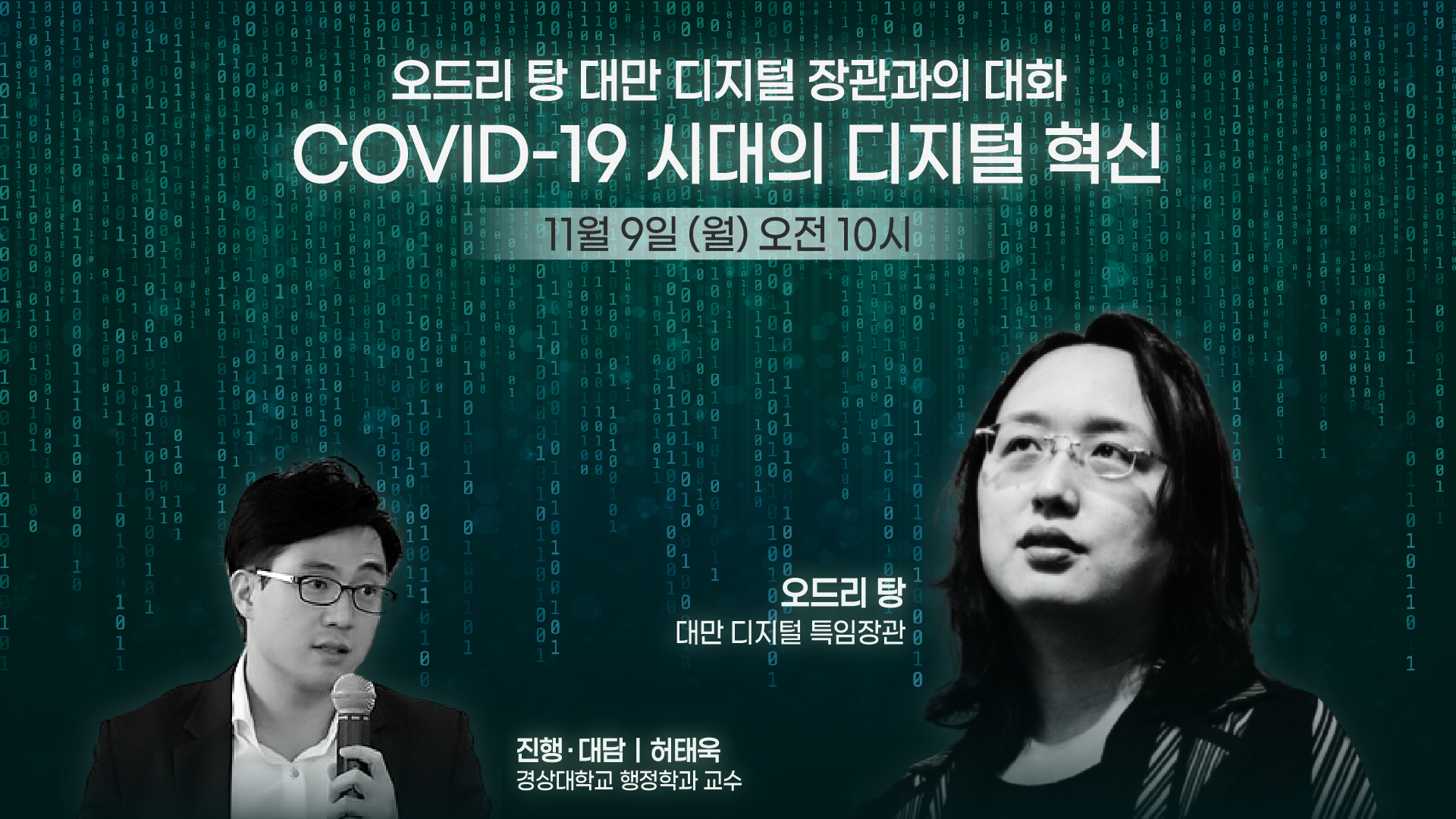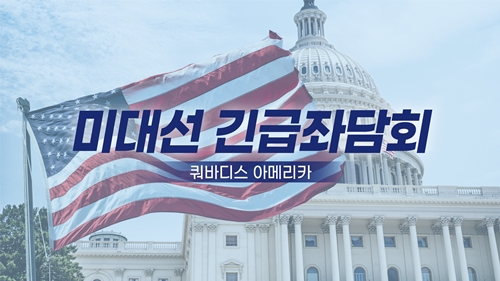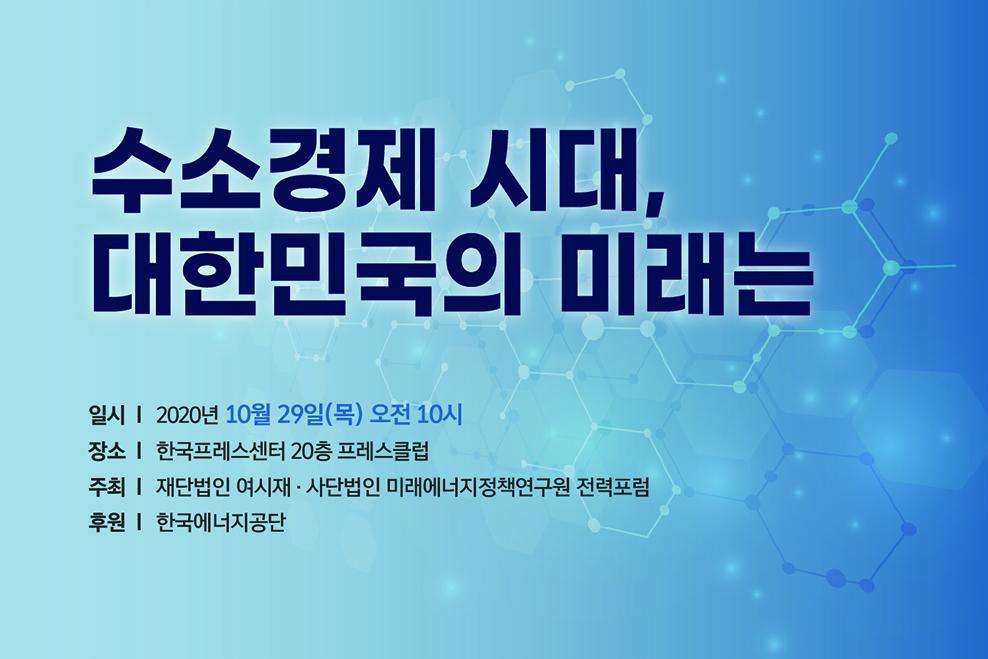Please join Yeosijae as we build a brighter future for Korea. Create your account to participate various events organized by Yeosijae.
- Insights
- |
- Global Order and Cooperation
[Interview / Frank Jannuzi] “Biden will be patient, but will not be passive and inactive on North Korea”
- Interview with Frank Jannuzi (President and CEO of the Maureen and Mike Mansfield Foundation)
- “(The Korean Peninsula issue) is like a three-legged race.”...it requires a carefully coordinated process where both the U.S. and South Korea are playing their roles and working closely together
- Biden will embrace multilateralism, but “allies should not expect that the U.S. would not have high expectations for them.”
- U.S. should offer solutions to China’s problems and seek cooperation to drive mutual growth.
The unprecedented 2020 U.S. presidential election is finally over, and the Democratic candidate Joe Biden seems to have won the race. People now wait to see what implications the results of the vote would have for America and the future of the world. Against this backdrop, Yeosijae spoke with the President and CEO of the Maureen and Mike Mansfield Foundation, Frank Jannuzi, a longtime advisor to Mr. Biden, to discuss the U.S. elections and the future of the Korean Peninsula. Mr. Jannuzi was a Policy Director of East Asian and Pacific Affairs for the U.S. Senate Foreign Relations Committee, where he advised Committee Chairman Mr. Joseph Biden, and is an expert on the issues of the Korean Peninsula and East Asia. The interview was conducted by Yeosijae Research Associate Son-Taek Wang, who was a Senior Diplomatic Correspondent at the YTN, and was joined by a member of Yeosijae’s advisory group and the President of the KGMLab, Jae-Young Lee. The following summarizes the highlights of the interview.
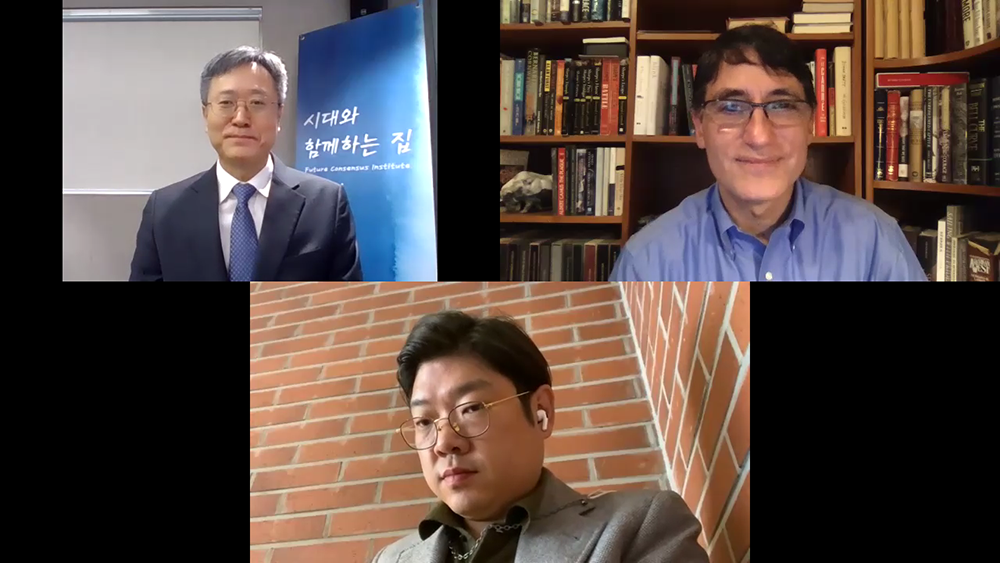
and Mike Mansfield Foundation / (Bottom) Jae-Young Lee, President of the KGMLab
“Joe Biden will bring a different style of leadership to the US, one that is rooted in alliances, multilateralism, and truth.”
“However, America’s friends and allies should not expect that the US would not have high expectations for them.”
Son-Taek Wang (Yeosijae Research Associate) = What are your thoughts on the recent U.S. presidential elections, and what should we expect from the Biden administration?
Frank Jannuzi (President and CEO of the Maureen and Mike Mansfield Foundation) = I would take note of three important events.
First, on the election of Mr. Joseph Biden as the president-elect of the U.S. – I believe he will bring a different style of leadership to the U.S., one that is rooted in ▲alliances, ▲multilateralism, and ▲truth. This will be refreshing for many nations that had some reservations about the American-centric approach of President Donald Trump. But I want to underscore that more than 70 million Americans voted for Mr. Trump. And the sentiment of America shouldering too much of the burden in the world and that we are not benefiting enough from the global system that we help to build is widespread. Mr. Joe Biden has promised that he will try to lead from the center and reach out to the Republicans and Conservatives, and govern as a president for all Americans. One of the implications of this is that America’s friends and allies should not expect that the U.S. would not have high expectations for them. It would be a mistake to think Mr. Biden, as president, would not look to America’s partners in the world and ask them, “How can you do more in support of the liberal democratic order? How can you do more to help shoulder the burden of promoting peace, stability, and economic growth in the world?”
Second, on America’s policy on Asia – U.S.-China relations will continue to dominate the overall picture. Avoiding a new Cold War with China is going to be a very important foreign policy objective for the next U.S. president. I believe that Mr. Biden will try to focus less on the anti-China strategy and more on reinforcing global norms to achieve this goal. This would mean that he would support free trade, intellectual property rights, freedom of navigation, human rights, democracy, and good governance, and will try to encourage other countries to support those values, principles, and norms of international relations, but not in a way that is explicitly anti-China.
Lastly, on the Korean Peninsula – Mr. Biden is a person who understands the legacy of the Korean War and has a sense of urgency about improving peace, stability, and security on the Korean Peninsula. He expressed this clearly in the fifteen-minute conversation he recently had with South Korean President Moon Jae-in. I believe the president-elect can be counted upon as someone who will work in close partnership with the South Korean government to try to address the challenges of North Korea.
Jae-Young Lee (President of the KGMLab) = The three points Mr. Jannuzi mentioned are, in a way, a return to something that we are used to – going back to normal. The world is hoping to see America coming back to its normal role. However, America’s influences in the world were on the decline even before the inauguration of President Donald Trump. It is unclear whether Mr. Biden’s appearance can suddenly bring America’s influences back to what we are used to. I do agree that we will be affected by the U.S.-China relations. A few years ago, the New York Times published an opinion editorial piece by Thomas Friedman titled, China Deserves Donald Trump. This shows that even the people on the left side believe that China has gone too far. Their activities over the past four years, even with President Trump, have not changed much. Though we hope that China would demonstrate the values that the U.S. upholds, they have not complied with these values. On the surface, they claim they are adhering to the values, but underneath, we notice that they have been behaving differently. And with the big megatrend of diminishing U.S. power on the global stage, there are concerns that it would be difficult to see any significant improvements to the U.S.-China relations. Not only has 70 million Americans voted for Mr. Trump, as Mr. Jannuzi mentioned, but the U.S. Senate is still controlled by the Republicans, and I believe that would affect Mr. Biden’s foreign policy coming forth.
“Biden administration will surprise us with a lot of younger, fresher faces in the government.”
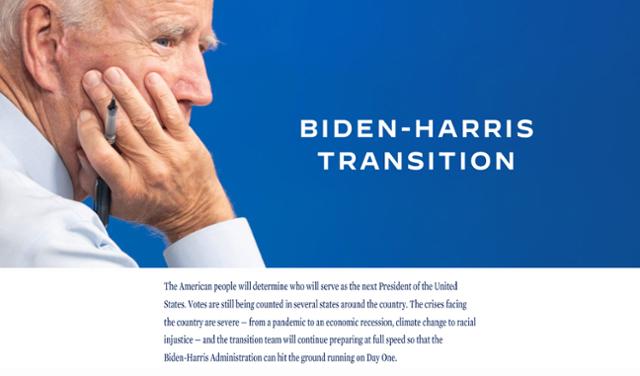
Son-Taek Wang = The transition team will need funding and support from the federal government, but that seems quite unlikely to happen today. Will this create any problems in regards to the preparations for new foreign or domestic policies?
Frank Jannuzi = Mr. Biden was a vice president for eight years and a senator for 36 years. His team is full of veterans from government service. Currently, the White House is refusing to cooperate with the transition team and is denying them the security clearances and money. But the good news is that Mr. Biden is better prepared than any other president in history to become the president. Even without Mr. Trump’s support, the Biden team already knows how the State Department, the Pentagon, and the CDC works, so unlike the Trump administration that was full of novices, or unlike the George W. Bush administration that brought a lot of new voices in government in many areas, Biden’s administration will restore a lot of expertise to the government.
Jae-Young Lee = Thinking back to President Bush’s transition team, many were concerned that the government’s policies would revert to his father’s era. If you look at Mr. Biden’s transition team, the lists of names of potential officials are full of individuals we are familiar with, especially from the Obama administration. That raises the concern that Biden’s administration could be a continuation of President Obama’s administration. As much as Koreans liked President Obama, we were also quite frustrated with his policies. Strategic patience is a case in point. So there are concerns about whether America is opening up a new future or going back to its old tactics.
Frank Jannuzi = It is important that we fully understand who Mr. Biden is. Although he is a seasoned politician, he is constantly growing. In other words, in his 45 years in government, he has never been static.
If I were to give a couple of examples, his growing commitment to climate change is something that happened later in his life. His epiphany on LGBT, equality, and gay, along with his thoughts about the access to reproductive rights for women who are poor, is something that he took into account later in life as well. And after witnessing that the Crime Bill of 1994, which he was one of the architects of, led to many cases of abuse by the police, he has since learned his lessons and changed.
I expect that the Biden administration will surprise us with a lot of younger, fresher faces in the government. If you look at the 23 members of the landing team that was announced by the Pentagon, 14 of the 23 are women and many are minorities.
During the campaign, Mr. Biden constantly signaled the message that he wants to develop unity with the liberal wing of the Democratic Party. Mr. Biden used to be considered a part of the liberal wing, but the party has been moving left. Now, he is considered a centrist or maybe even a more conservative Democrat. But he reached out to the liberal wing, and he formed these task forces on climate change, healthcare, environment, national defense, education, police, and justice reforms. And these were co-chaired by younger liberal voices and more established Biden veterans. They came up with a unity platform, and this is reflected in the climate change approach, health care policies, and criminal justice reforms, among others.
“Strategic patience should never be neglect or inactivity.”
I fully understand the worry that some have about the Korean Peninsula. Strategic patience was too passive, and we did not accomplish anything in eight years. However, I believe that strategic patience gets a little bit of bum rap. Strategic patience should never be neglect or inactivity. That would be tragic. However, we have to be patient with North Korea. They require a lot of patience, and Obama actually tried. It takes two parties to make things work, and in this case, it requires three parties because you also need a supportive South Korean government. Obama was confronted with the missile tests, nuclear tests, the sinking of the Cheonan, and repeated violations of the UN Security Council resolutions. He was also confronted by Lee Myung-Bak and Park Geun-Hye administrations, that were, at times, reluctant to support a full-throated engagement policy with the North. Mr. Biden understands that the only way to solve the problems on the Korean Peninsula is through diplomacy. He also understands that time is not on our side. The longer we wait, the bigger North Korea’s nuclear arsenal becomes. And President Moon Jae-in’s tenure in office ends in 2022. We do not have a lot of time with this president to get things done. So I hope Mr. Biden will pleasantly surprise people in Seoul — that he will be patient when he needs to be but would not be passive and inactive on the Korean diplomacy.
“Biden will try to negotiate new treaties with Russia and China on arms control.”
Son-Taek Wang = What are your predictions for America’s new policies on East Asia?
Frank Jannuzi = Mr. Biden is a bit of an old school guy. This means he believes in alliances, international organizations, and the existence of international law. He prefers to move in partnership than to move alone. These are some of his instincts honed over many years and nurtured by his experience as a specialist on NATO and European security issues, where he found great value and invested a lot of time in understanding NATO and the value of NATO in winning the Cold War and containing the Soviet aggression.
So his foreign policy is going to be one that is marked by “alliances first instead of America first,” or America leading in partnership with like-minded allies. It is going to be marked by attention to and support for international organizations that serve our interests like the WHO, WTO, UN, IMF, and the ADB. He believes in arms control. Instead of eliminating treaties, he would try to negotiate new treaties with Russia and even with China on arms control.
The new administration will put climate change back immediately to the U.S.’ domestic and foreign policy agenda. It will resume cooperation with the Paris Accord process and try to become carbon neutral by 2050. That is going to have implications on energy, foreign, technology, and trade policies. President Trump was very transactional and preferred bilateral negotiations, like a real estate deal. Mr. Biden is more multilateral. In dealing with tough challenges like China, his instincts would be to reach out to friends and say, “How can we work together? What can we do to help shape China’s decision-making in a more positive direction?”
Biden’s Message to China
“1. Play by the rules 2. Do not threaten our national security 3. Respect human rights”
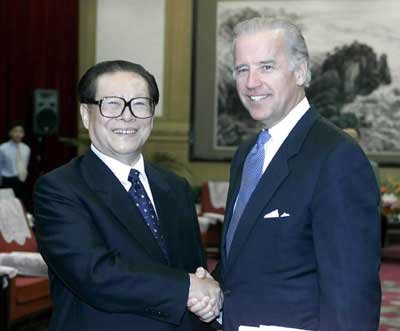
Joe Biden visited Beijing, China, as the Chair of the Senate
Foreign Relations Committee and met with the then-General
Secretary of the Chinese Communist Party Jiang Zemin.
(Source: Xinhua News Agency)
I want to share a story about a trip to China. Mr. Biden and I traveled to China in 2001 and met with senior leaders of the government. His message to China then was similar to his message to China now. First is that China should play by the rules. China had just joined the WTO when we made our visit, and Mr. Biden’s message was “You need to obey the rules.” Second, his message was that China should not threaten our national security. In 2001, China was selling munitions to Iran, and Mr. Biden wanted them to stop – and they did stop. The third message was on human rights. Mr. Biden spoke to the Chinese leaders about Tibet and encouraged a dialogue with his holiness Dalai Lama. These three pillars of his approach to China are going to remain constant.
A Lesson from a Student at Fudan University:
“Change in China must come and originate with the Chinese people.”
But in trying to persuade China, Mr. Biden learned another lesson on that trip. When he met with students at Fudan University in Shanghai, he asked students, “What do you think about the students of the Tiananmen Square? Were they heroes or traitors of the People’s Republic of China?” It was a bold question to ask, and I was worried that students might suffer consequences if they answered it honestly. But eventually, a student stood up and said, “Those students of the Tiananmen are heroes of the People’s Republic, but they were also naïve, and they have also not studied Newton.” I was confused as to why Newtonian Physics was coming into this conversation. But the student continued, “China is a large object in motion. Students of the Tiananmen stood up and tried to change its direction, and they were crushed, like their bodies beneath the tanks. Senator, change what comes to China but it will be we, the students of Newton, who determine the pace and direction of the change and not you or anyone else in Washington.”
Mr. Biden told me afterward that it was one of the most meaningful conversations he had in China. Because it was a reminder that change in China must come and originate with the Chinese people and that there is a limit to what anyone else can do to try to shape the decision-making of the Chinese leadership. We have influence, but our influence is not an authority to determine China’s future.
“I expect to see more women and people of minorities”
Son-Taek Wang = Whom do you think will be Mr. Biden’s choice for diplomatic and security positions?
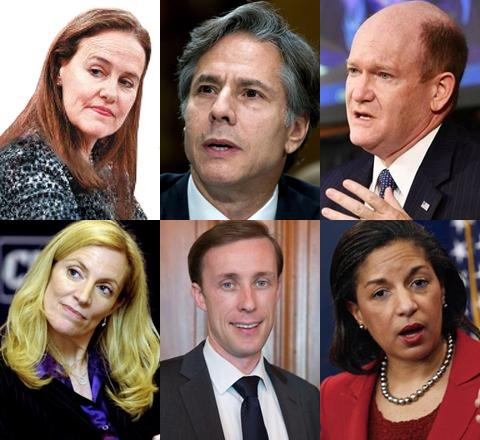
of Defense for Strategy), Tony Blinken (former Deputy Secretary of State),
and Chris Coons (Democratic Senator)
(Bottom row, from the left) Lael Brainard (Federal Reserve Board Governor),
Jake Sullivan (former National Security Advisor to Vice President Joe Biden),
and Susan Rice (former National Security Advisor)
Frank Jannuzi = Michèle Flournoy is a favorite to become the first woman ever to be the Secretary of Defense. I believe women in minorities will be represented in large numbers at the top of Biden administration and throughout the administration. We have never had a woman as the Assistant Secretary of State for East Asian and Pacific Affairs confirmed by the Senate ever in the history of the U.S. I would love to see my former intern Jennifer Park Stout nominated to be the Assistant Secretary of State for East Asian and Pacific Affairs.
I think Tony Blinken will certainly play a role in the administration. He is a trusted voice of the president-elect, and I would expect him to be close to Mr. Biden in some capacity on foreign policy and national security. Then there is going to be a blend of younger, fresher voices and faces. You may see people like Jung Pak, a veteran CIA analyst, in the new administration. She was one of the top North Korea watchers in the Bush administration.
There are a number of people whom I expect to be in government – some of them veterans from the Obama administration and a lot of new faces as well. There will be Delaware faces like Senator Chris Coons. He is a trusted friend of Mr. Biden. The Treasury Department is very important. My favorite, Lael Brainard, is a member of the Federal Reserve Bank and was a former Under-Secretary of the Treasury for International Finance. She is a genius, and she happens to be married to Kurt Campbell, who was the Assistant Secretary of State for East Asia and Pacific Affairs.
Jake Sullivan, as a trusted advisor to Hillary Clinton, will likely be back in government, probably on a domestic policy role. Susan Rice has already served as the UN Ambassador, Assistant Secretary of State, and Deputy National Security Advisor, and she is a person of enormous capacity. If she comes back into the government, I believe she will serve the people well. And another person that I like a lot is Bill Burns, who is a veteran of the State Department.
“We need to restore professionalism and integrity to the State Department.”
One of the elements to consider at the State Department and the Pentagon is that you are going to need a rebuilding process in terms of professionalism and removing politics. I would hope that whoever ends up leading the Pentagon and the State Department, that those individuals are those who put the country first and politics second. That is why people like Bill Burns, a career diplomat who is not judged to be a partisan figure, might be a really wise choice for the State Department because we need Foreign Service Officers from across the political spectrum. We need to restore professionalism and integrity to the State Department. That is going to take a person with deep understanding and appreciation of the culture of foreign service and for the role of the State Department in the world.
The State Department has been politicized rather heavily in the last few months. The State Department has lost a lot of really talented people who objected to the America first approach of President Donald Trump. So we have to rebuild the Department in a way that is not partisan. We do not want a pendulum swing from a politicized Republican State Department to a politicized Democratic State Department.
“There is no silver bullet to address the challenges presented by China.”
Jae-Young Lee = Let’s go back to your trip with Mr. Biden in 2001. China is a different animal right now from 20 years ago. You talked about “playing by the rule, not threatening the U.S., and being keen on human rights.” But on all those three fronts, I am not sure whether China has made any progress. It could be argued that they have actually moved backward. Even though Mr. Biden was very bold as a senator, it would be very difficult for him, as a president, to watch and deal with China, given where it is now.
Frank Jannuzi = China that Mr. Biden visited in 2001 was still emerging on the global scene and, by any measurement, was much weaker than it is today. I also agree with your premise that not only has China’s progress in certain areas slowed down, but it has even reversed in some areas. I spent two years as the Deputy Executive Director of Amnesty International USA, as a champion of human rights globally. We published reports on China’s human rights records even though we were not allowed into China to conduct field research in a way we are in most other countries. Human rights in China are denied not only to minorities but to ordinary Chinese as well. They are unable to bring action against their government to try to get satisfaction when their rights are denied.
Mr. Biden has no silver bullet to address these challenges. On the human rights front, he has tried historically to support institutional change. One of the things he did as a senator was help set up a joint law school program at Tsinghua University to train lawyers. But now, we see those lawyers being arrested. How effective is that if you are just filling up jail with a more educated class of prisoners? He worked with the Primer of China to try to promote the economic reforms necessary for China to enter the WTO and live up to those rules. China made a lot of progress in opening up markets and privatizing state-owned enterprises. However, much of the progress has stopped now, and when you look at the financial, transportation, and oil sectors, the Chinese have walled these off from competition. There are also issues with intellectual property rights and in the realm of cyber. There is no silver bullet. Any U.S. president is going to have a tough time grappling with it.
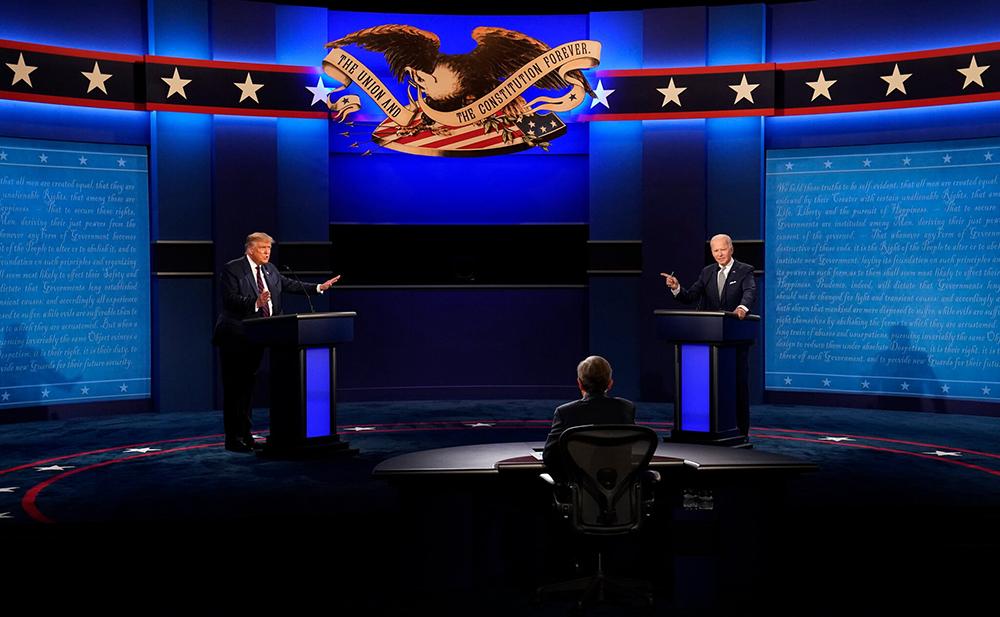
I think Trump should be commended for taking the matters seriously. Although I do not think his tariff approach was successful, because it was very costly economically, and the U.S. had to pay billions of dollars in subsidies to American farmers for lost contracts, I still think that it is better to try something new than to try something that has failed and hope for a different outcome.
But where I find fault with Mr. Trump is his unilateralism. I do not think Mr. Biden expects to lead some kind of a global anti-China coalition. It is not the direction that South Korea, Singapore, Vietnam, or the world wants to go. But I do expect that Mr. Biden will try his best to reinforce the global system and impose penalties when China violates the norms. We need to work with Korea, Japan, and the EU on the defense of intellectual property. When China steals our IP, we have to impose a price on China. If we do it together instead of by ourselves, we are going to be in a better position.
The Chinese are very skillful at playing one off against the other. If we do not make a united front on these challenges, they are going to peel us off individually. If we try to punish them for agricultural exports, they will stop buying our soybeans and buy them from Brazil instead. If we give them a hard time in the South China Sea, they will stop buying our LNG and shift their contracts to Iranian oil and gas. So while I do not think there is a silver bullet, we still need to work with each other to form a united front.
China is the Number One Beneficiary of the Liberal Democratic Order
“We should surround China with a permeable, inclusive, norms-based architecture into which they can integrate themselves.”
Son-Taek Wang = Let’s discuss more about policies on Asia. There have been mentions of the Indo-Pacific strategy, the QUAD group, Clean Network, and Economic Prosperity Network. What are your predictions as to how these policies will unfold in the future?
Frank Jannuzi = The concept of “free and open” Indo-Pacific is very attractive. It seeks to set up a global trading network that is fair and transparent. It is also an effort to remove trade barriers and respect IPR and the free flow of information. I think that where I would find some fault with the Trump administration’s approach is not with championing of these values – because I think we should be – but in the presumption of a zero-sum game. I do not think it is necessary for the U.S. support for free and open Indo-Pacific to be equivalent to an anti-China strategy.
I recognize that the Belt and Road initiative and many other Chinese initiatives lack transparency, attention to human rights, and environmental standards—qualities that we believe are important. I think we should stick to our norms. We should not have a race to the bottom, where we compete with China to the bottom on human rights, labor, and environmental protection. So I believe things like Clean Network will probably endure but, hopefully, they will be less about defeating China and more about advancing opportunities for American and like-minded countries who want to invest that way.
The QUAD is a very interesting concept. They just held their first joint military exercises. And because the Indo-Pacific is one giant trading network, there is something that can be said for Japan, Australia, India, and the U.S. cooperating with each other especially in the maritime sphere. I have personal doubts about whether the QUAD represents a very resilient, effective architecture because of the differences between the four countries, including their perception of China. While there is no doubt in my mind that India wants China’s influence to be balanced by the U.S., Japanese influence in the Pacific, and India’s influence in Southeast Asia, I am not sure we should put too much weight on that four-legged stool. I am not sure how much weight it can bear because I think the architecture of it is not compelling. I think it has some limited utility.
A key thing from my perspective is that rather than fashioning a soft containment of China, I think what we should have instead is a kind of norms-based regional architecture that China would be welcomed to join when they are ready. The Chinese might call it a soft containment, but I do not think we should. We should surround China not with a wall but a permeable, inclusive, norms-based architecture into which they can integrate themselves. Because one of the truths I believe about the last forty years of China is that no country on the planet has benefitted more than China from the liberal democratic order the U.S. and the allies built after the Second World War. China is the number one beneficiary of peace, stability, openness, investment flows, market access, and education that has been made possible by the liberal democratic order. So I do not think China should be resentful about the U.S. seeking to sustain that order. When you join a club, and you pay the dues of the club, you want to have a voice in the rule-making of the club. If you are a full member of the club, your vote has to count the same as everyone else. I think the Chinese have the right to have a voice in the club. However, they do not get to single-handedly rewrite the rules either. I think China is going to be a big challenge.
“We should offer China solutions to their problems and have them pay us for it.”
I would like to make a couple of counter-intuitive observations.
One is that China may be weaker than we think it is. I know that everyone is focused on the fundamental strength of China—its military power, economic might, growing political influence around the world. But do not forget, the Chinese are getting old, same as the Koreans and Japanese but even faster because of their one-child policy. The Chinese are poor. They are rich as a nation, but their per capita development standards are still about a fifth of South Korea. Third, they face many difficult challenges in energy, as bad as or even more so than South Korea and Japan in terms of energy independence, because they are heavy manufacturing country. They import millions of barrels of oil per day. So they have no energy security and energy independence. They also have environmental problems that are going to require trillions of dollars of remediation. They have widespread ethnic unrest and problems with corruption and income inequality. I do not think we should envy China too much. The Chinese leadership has a full plate on their hands.
One of the strategies I would like to see us develop to deal with China is to offer them solutions to their problems and have them pay us for it. Our public health system is actually pretty good, though people complain about it in America. Our healthcare system is a lot better than China’s. We have a very sophisticated life insurance policy system, China does not. We have social security and a welfare system of old-age insurance more sophisticated and effective than China’s. On climate change, we are developing the technologies and we should try to reinvest, and be the leaders of clean technology like wind turbine, biomass, and next-generation nuclear power. This should be an opportunity for us to export to China and help them solve their problems and help us get rich doing it. I think we should not become discouraged about our ability to compete effectively with China. They have big problems at home. I think the last thing they want is to pick a fight with the world’s only superpower.
“The security dilemma on the Korean Peninsula cannot be resolved without American leadership.”
“We need to embrace a holistic approach that pushes for progress on both peace and denuclearization fronts.”
Son-Taek Wang = Korean government officials hope that Mr. Biden’s foreign policy team will provide us with support in the peace process, including the U.S.-North Korea dialogue. Can you give some advice for the Korean government to get the support they need from the U.S. government?
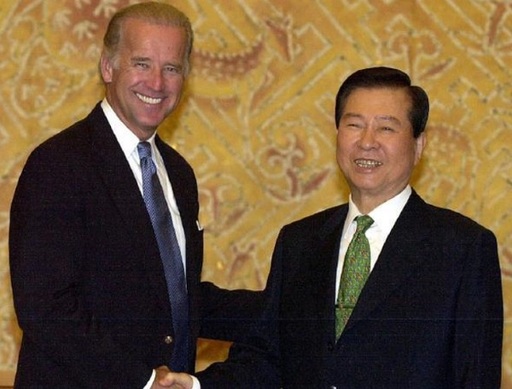
Committee Biden in 2001 (Source: Yonhap News)
Frank Jannuzi = I cannot speak for the Biden campaign or the administration. But what I know to be true about Mr. Biden is when he met with President Kim Dae-Jung, he came to internalize a couple of key points.
First, he realized that this region is the “Korean” Peninsula, not the “American” Peninsula. So any solutions to the division of Korea have to be fashioned by the Korean people and one in which the U.S. is playing a supporting role. I think Mr. Biden would not want to assert leadership roles.
However, it is also a fact that the security dilemma on the Peninsula cannot be solved only by the Korean people. This issue cannot be resolved without American leadership and engagement. So on one hand, you need peace and stability on the Peninsula. This involves a lot of North and South. On the other hand, you need security. This requires an end of the war, denuclearization of the Korean Peninsula, and the removal of threats facing the South and the allies, along with the attention to the insecurity of the North.
So what is required for the leadership of South Korea to ensure that President Biden will fully embrace that holistic approach is that there is both a peace process and a denuclearization process—that the two are intertwined with one another. They are inseparable. They must move together. One can be slightly ahead and one can be a bit behind, but it is like a three-legged race where you tie two people’s legs together and try to run down the field. One cannot get too far ahead. So it requires a carefully coordinated process where both the U.S. and South Korea are playing their roles and working closely together. I think it would be helpful if President Moon reminds the new administration of the importance of addressing both because it is inconceivable to me that we will make any progress on the denuclearization front if we do not simultaneously find a way to end the war, build North-South relations, implement the Pyongyang Declaration elements, and over time, find a way to remove sanctions as the North bring itself into compliance with the UN Security Council resolutions about their nuclear and ballistic missile programs.
My advice is to not expect the U.S. to play a role for which it is not well-suited. It cannot be the instrument that forges cooperation between the North and the South. But we can be the partner of the South that helps resolve the security dilemma and unlocks the pathway to peace on the Korean Peninsula.
Jae-Young Lee = There is a widespread image that the Moon administration is more pro-North than it is more about denuclearization. Would this kind of perception be a barrier for Korean officials to persuade the Biden administration?
“We need more discussions on the long-term visions for the South Korea-U.S. alliance.”
Frank Jannuzi = The South Korean government has already reaffirmed its support for the alliance, and I think that is a welcomed reassurance for Washington. A reciprocal measure by Washington in support of the Singapore Declaration would probably be a very welcomed gesture. I do think there are some in Washington who wonder about whether South Korea has a long vision for the future of our alliance or only a short vision. I would hope that the South Korean people and the government would have a long term vision. That does not mean the alliance has to remain static or that it cannot evolve, change, and adapt because I think it must. But as an American, I see a great long term value in the special alliance between South Korea and the U.S. that goes far beyond its value as a deterrent against North Korean aggression.
I believe the U.S. and South Korea, as advanced democratic countries, share many common interests. There are a lot of things we can do together in the world, from disaster relief to pandemic response, promotion of economic growth and human rights, and good governance. And it is good for the South to have a powerful friend across the Pacific because South Korea is surrounded by bigger, strong, several nuclear-armed nations.
So to me, it just makes sense for South Korea’s future. But I think I would like to hear more from the Moon administration and the Korean people about their vision for the U.S. relationship in the long run. I think that is a decision that the Korean people would have to make, but I would hope that they would see a future for this alliance that goes beyond the resolution of the North Korean nuclear challenge.
Jae-Young Lee = On QUAD, I agree that it has a limited utility. We need to seek a way to move away from a “world against China” or a relationship based on animosity. Personally, I find it regrettable that China’s Belt and Road initiative did not pan out to be the relationship based on cooperation like I had first thought. The initiative has been criticized for its lack of global standards, and China, as I mentioned, has failed to meet my expectations.
Again, I think we have to move toward cooperation, rather than facing off each other. And on the Korean Peninsula, I am hopeful that the Biden Administration, even with the fifteen-minute conversation with President Moon, has given us a picture that our alliance is strong and that it is something to cherish as an important part of his foreign policy. I hope this will flourish into something better than what we have seen over the past four years.
Biden’s Motto: “Build Back Better”
“This philosophy should be applied not only at home but to the rest of the world.”
Frank Jannuzi = Biden’s motto when he was running for the presidency was “build back better.” So I would hope that this philosophy would apply not only at home but to our allies in the world. The U.S.-South Korea alliance is strong, and it is in a good place overall. But I would have that we would build it even stronger and even better and that we would continue the evolution of our partnership from one that used to be a “big power-little power” and donor-recipient country relationship to a truly global partnership where we are working together towards peace, security and shared values around the world. That is the kind of world I want my daughters to grow up in, and I am excited that South Korea can be a partner in that world.
This text was originally published on Yeosijae’s Korean homepage on November 17th, 2020.
< Copyright holder © TAEJAE FUTURE CONSENSUS INSTITUTE, Not available for redistribution >

